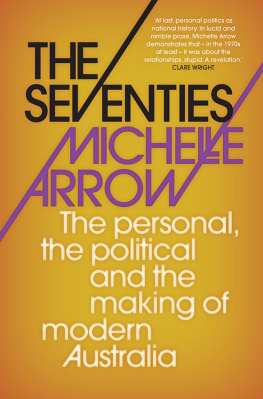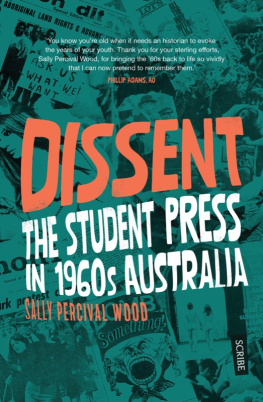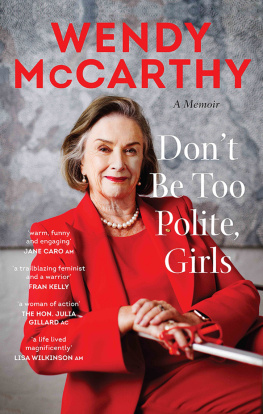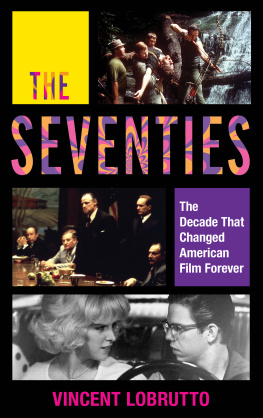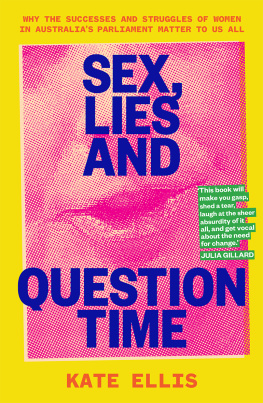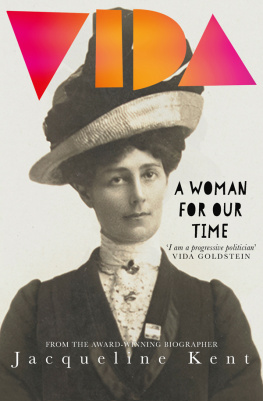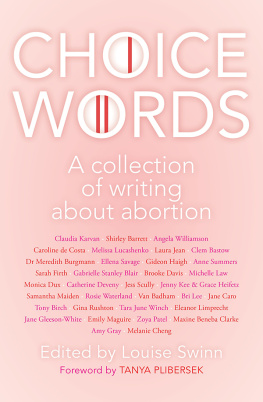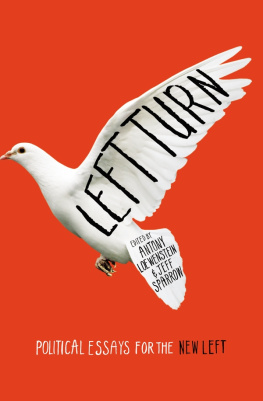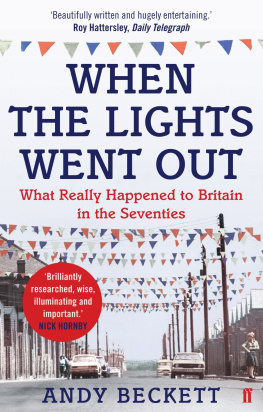Table of Contents
Landmarks

MICHELLE ARROW is an award-winning historian based in Sydney. She is an Associate Professor in Modern History at Macquarie University, where she teaches and researches postwar Australian history, the history of popular culture, and the ways history is depicted in television and film. She has won a national award for her university teaching and her two previous books have both been shortlisted for prizes. Michelle has also produced history for radio and television: in 2004, she was a historianpresenter for the ABC TV series Rewind, and in 2013, with Catherine Freyne and Timothy Nicastri, she made the radio documentary Public Intimacies: The Royal Commission on Human Relationships, which won the 2014 Multimedia History Prize in the NSW Premiers History Awards.

A NewSouth book
Published by
NewSouth Publishing
University of New South Wales Press Ltd
University of New South Wales
Sydney NSW 2052
AUSTRALIA
newsouthpublishing.com
Michelle Arrow 2019
First published 2019
This book is copyright. Apart from any fair dealing for the purpose of private study, research, criticism or review, as permitted under the Copyright Act, no part of this book may be reproduced by any process without written permission. Inquiries should be addressed to the publisher.
ISBN: 97814742234700 (paperback)
9781742244440 (ebook)
9781742248899 (ePDF)

A catalogue record for this book is available from the National Library of Australia
Design Josephine Pajor-Markus
Cover design Sandy Cull, gogoGinko
All reasonable efforts were taken to obtain permission to use copyright material reproduced in this book, but in some cases copyright could not be traced. The author welcomes information in this regard.
This book is printed on paper using fibre supplied from plantation or sustainably managed forests.

INTRODUCTION
Public intimacies
T he drive to Chester Hill takes you past service stations, schools ringed with high fences, and red and blond brick houses, some of which have seen better days. At Chester Hill, amid the sprawl of Western Sydney, is the New South Wales repository of the National Archives of Australia. The National Archives describes itself as the nations memory. The records housed here have all been generated by the Commonwealth government: everything from immigration to repatriation, cabinet papers to banned books. This all sounds rather grand, but the building itself is a no-frills kind of place, with its own rituals for researchers. Bags go in numbered lockers, which open with keys. You need to bring your own lunch, which you eat silently in a quiet kitchen. At around 9.55 each morning, a coffee van Cafe2U swings into the car park, selling flat whites and iced donuts. The archives is a place to spend time in your own company; you can go a whole day without talking to another person, beyond exchanging pleasantries with the archivists who work there.
Throughout 2012, I visited the National Archives every week because I had found something extraordinary there. In 1974, Gough Whitlams Labor government had initiated a Royal Commission on Human Relationships. To contemporary ears, a government inquiry into human relationships doesnt seem so strange: after all, weve now lived through decades of public discussion of our intimate lives. But back in the Whitlam era, a Royal Commission into Human Relationships was new and confronting. It was conceived as a way to investigate the prevalence of abortion in Australia, but it grew much bigger than that. Underpinned by Whitlams ethos of open government, the Commission invited Australians to tell them what do you think? about sex and sex education, abortion, family life, family planning, parenthood, child care, womens rights and homosexuality. People wrote and responded to the Royal Commission in a myriad of ways. They gave evidence in person. They phoned in. They participated in research. They wrote ocial submissions, which were available for public inspection at the National Archives while the Commission was sitting. All of this material informed their final recommendations more than 500 of them, published in five hefty volumes that caused a sensation and a scandal when they were finally released in 1977. When the work of the Royal Commission had finished, all of this evidence was archived and filed away safely at the Chester Hill repository. In 2012, I started opening those boxes, and the voices of mid-1970s Australia spilled out of them.
Archival research is one of the most enjoyable parts of a historians job. I still get a quiet thrill when I open a box of original files: untying the pink linen ribbons, opening the manila folders. Sometimes you read an original document and you can see instantly how it animates a broader idea. Sometimes you even find things that make you laugh. The submissions to the Royal Commission on Human Relationships were as diverse as the people who wrote them. Whether they were typed on letterhead, handwritten on floral stationery, or in block letters on plain lined paper, they expressed a range of emotions: love, anger, loneliness, bewilderment, determination. People wrote with ideas for how to make human relationships better. They wrote to plead for political and social change: sometimes they sought to prevent it. But occasionally, these submissions expressed something so personal so awful that it stuck and swirled in my head for days afterwards. I was left with this feeling more than once on my drive home from the archives.
Take the submission from a woman who had had seven miscarriages during her three-year marriage in the late 1950s. The miscarriages were caused by her ignorance of contraceptives, my [now] ex-husbands fear of responsibilities, and his resultant method of eradicating them by the use of a few well-aimed kicks to the stomach and breasts.
This letter was deeply, almost unbearably personal. This womans grief and trauma were palpable on the page as I read it at the National Archives, all those years later. She told her story to strangers because she wanted it to persuade those in power to make change, to help other women. In writing about her life to the Royal Commission on Human Relationships, this woman inserted her personal experience into the political domain. She placed a deeply private memory on the public record to make a claim for abortion law reform, for better support for women in violent relationships, for better education about contraception and sexuality.
This kind of public intimacy was both a new way to talk about private life and a new political strategy, all at once. Its best summed up by the womens liberation slogan The personal is political. This is an idea that seems so obvious to us today that its hard to conceive of a time before it, but it was genuinely transformative. Womens liberation and gay liberation were built upon this core principle, which had many permutations: from coming out and consciousness-raising to the creation of womens refuges and political demonstrations like the Sydney Gay and Lesbian Mardi Gras that were equal parts party and protest. The idea that the personal could also be political made Australians rethink the boundary between public and private. It has changed our political and social life. But all too often, this change has been obscured when we tell the national story of the 1970s.

